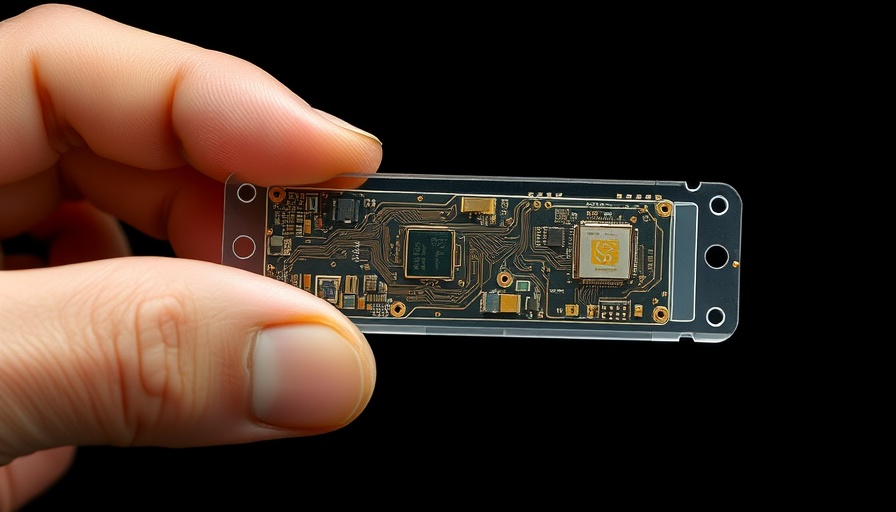
The Future of Prosthetics: A Leap Toward Independence
The landscape of healthcare technology is rapidly evolving, with companies like Phantom Neuro paving the way for unprecedented innovations aimed at improving the quality of life for amputees. Recently, the Austin-based startup secured $19 million in funding to advance its development of a revolutionary wristband-like device. This device, implanted just under the skin, allows users to regain purposeful control over their prosthetic limbs, effectively bridging the gap between human intention and mechanical action.
Understanding Phantom Limbs and Their Impact
The phenomenon of phantom limb sensations — where amputees report feeling as if their missing limb is still there — is not only a fascinating neurological occurrence but is now being harnessed for technological advancements. Phantom Neuro's innovation is built upon this very principle. By utilizing their advanced “Phantom X” software, the company translates nerve impulses from the residual limb into actual movement of prosthetics. In a recent study, this system exhibited an accuracy rate of 94% for controlling hand and wrist movements, a promising development that could mimic natural functionality.
The Science Behind the Technology That’s Helping Amputees
What sets Phantom Neuro apart is not just the technology itself, but the science behind it. Amputees often retain nerve endings that connect to the part of the brain responsible for limb control. By implanting a strip that can read these nerve signals, Phantom’s technology facilitates an intuitive way for users to command their prosthetic devices. Users can achieve remarkable functionality — up to 85% — after just a brief calibration period, making it a groundbreaking leap towards greater autonomy in day-to-day activities.
Investor Confidence and Industry Support
Phantom Neuro's ongoing success can be largely attributed to the confidence placed in it by various high-profile investors. The latest funding round was led by Ottobock, a respected entity in the prosthetic industry, alongside seasoned investors like Johns Hopkins and Intel. This support speaks volumes about the potential impact of Phantom's technology in the medical device market, marking it as a startup worth watching.
Meet the Visionary Behind the Innovation
Dr. Connor Glass, the founder of Phantom Neuro, has a unique journey that resonates deeply within the context of his innovations. After experiencing his own limitations due to repeat stress fractures, Glass transitioned from aspiring military officer to medical innovator. This personal transformation fueled his commitment to help those facing far more serious challenges related to limb loss. His narrative exemplifies the idea that adversity can be a catalyst for remarkable breakthroughs in technology.
What Lies Ahead for Phantom Neuro and Similar Innovations
As Phantom Neuro continues to develop its technology, the future of prosthetics seems brighter than ever. With ongoing research and potential partnerships with other tech companies, future iterations of this technology could expand its reach, offering solutions beyond amputees, potentially aiding those with neurological impairments as well. As the tech industry progresses, the synergy between healthcare and cutting-edge technology is poised to foster solutions that were once considered science fiction.
Final Thoughts: The New Era of Bionic Limbs
The intersection of healthcare and technology is paving the way for remarkable advancements in how we understand health and mobility. For amputees, solutions like those provided by Phantom Neuro not only offer hope but also tangible steps towards reclaiming independence. As we look forward to continuous developments in this field, it becomes clear that innovation is driven not just by technology, but by the human stories and aspirations that inspire it.
 Add Row
Add Row  Add
Add 



Write A Comment